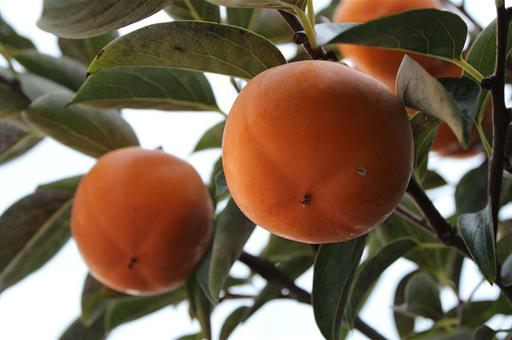Within the framework of the visit by the President of the Government of Spain, Pedro Sánchez, to Beijing
Spain and China sign agreements allowing Spanish almonds and persimmons to be exported to China
News - 2023.3.31
Negotiations on the Spanish almond export dossier to China began in October 2017, when the Ministry of Agriculture, Fisheries and Food formally requested the Chinese authorities to begin talks to establish the phytosanitary requirements. Since then, the ministry has been working intensively on the exchange of technical information with China's General Customs Administration, which has now culminated in the signing of the phytosanitary export protocol.
This is a response to the great interest shown by the almond-producing sector in introducing its products into this emerging market. China is a fundamental destination within the strategy to expand almond production, as it is estimated that around 50,000 tonnes will be destined for this country by 2025, and another 90,000 tonnes by 2032, according to estimates communicated by the sector itself.
This export opportunity will benefit a crop that is present practically all over Spain, with special relevance in the autonomous regions of Andalusia, with an average production of 100,000 tonnes in the 2020-2021 and 2021-2022 seasons, Aragon (60,000 tonnes), Castile-La Mancha (50,000 tonnes), Valencia (37,000 tonnes), Murcia (28,000 tonnes) and Catalonia (20,000 tonnes).
Negotiations to export fresh Spanish persimmon fruit to China began at the end of 2016, when the producer sector expressed its interest in opening up this market. This interest was officially conveyed to the Chinese authorities in 2017, when the Ministry of Agriculture, Fisheries and Food and the Chinese General Administration of Customs began the technical information exchange procedure, which included a virtual audit of Spain's phytosanitary control and certification system for persimmon.
The protocol is a response to the great interest shown by the persimmon-producing sector in expanding export opportunities to a third country. Thanks to this agreement, China joins the more than 50 countries to which persimmon is exported outside the EU.
This export opportunity will benefit the producing areas in Spain, which are mainly located in the Valencian Community and Andalusia, with more than 85 % and 10 % of the production area, respectively, followed by Extremadura, Catalonia, Murcia and Aragon.
In both cases, the agreed phytosanitary conditions require the cultivation plots and packaging warehouses that want to take part in the export programme to be registered, certain crop management measures during the production cycle up to its departure to China to be monitored.
This export process involves operators and the regional and central administration, whose joint action is reflected in the ministry's computer application called CEXVEG (foreign trade in vegetables). CEXVEG is a guarantee of compliance with export conditions and a safeguard of the traceability of the entire process, as well as an example of coordination between the regional and central administrations, as verified and assessed by the authorities of the People's Republic of China in the audit carried out in Spain.
Opening up new markets
The protocols signed with China expand the portfolio of bilateral agreements already signed with this country for the export of fresh fruit such as citrus fruits, peaches, plums and table grapes, as well as vegetable products for animal feed, such as fodder oats, olive paste and dehydrated alfalfa.
The negotiations for the opening of new markets highlight the ministry's negotiating efforts with the phytosanitary authorities of the different third countries that are of interest to Spanish producers, within the framework of boosting the internationalisation of the agri-food sector.
Overall, Spanish agri-food exports exceed €68 billion a year, of which more than €24 billion correspond to exports to non-EU countries. The agri-food foreign trade balance shows a positive balance of some €14 billion, which positions the agri-food sector as the driving force behind Spanish exports of goods and merchandise.
Non official translation





